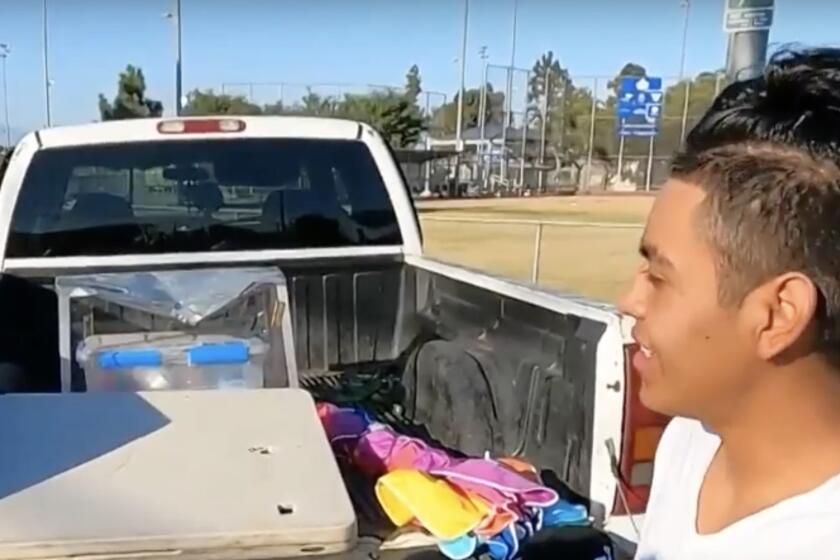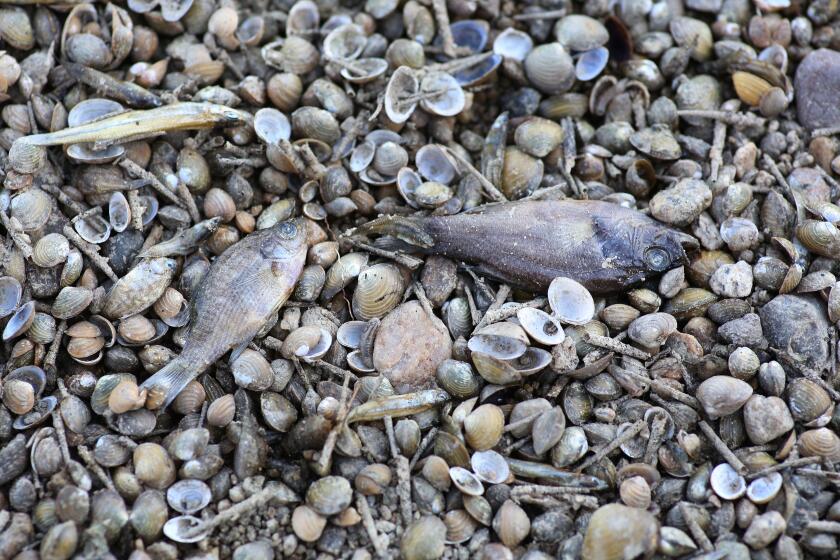Probe turns to prescription drugs
With initial autopsy results inconclusive, the investigation into Michael Jackson’s death focused Friday on whether the pop icon, who had struggled with painkiller addiction in the past, overdosed on prescription drugs.
“We know he was taking some prescription medication,” Craig Harvey, a spokesman for the L.A. County coroner’s office, said at a news conference announcing the completion of the autopsy. He said more tests, including a toxicology screen that would take four to six weeks, were required to determine the cause of Jackson’s sudden cardiac arrest.
As the lab work began, detectives with the Los Angeles Police Department’s Robbery-Homicide Unit were seeking to question a physician who was in Jackson’s Holmby Hills’ mansion Thursday when the entertainer stopped breathing. Dr. Conrad Murray, a cardiologist with offices in Las Vegas and Houston, was identified by a Jackson advisor as the singer’s personal doctor of three years and the man tapped to assure the 50-year-old performer’s health during the comeback concert series that had been planned for next month in London.
Investigators said Friday night that Murray had agreed to be interviewed in the presence of his lawyer. Earlier in the day, police had seized the BMW sedan Murray had driven to Jackson’s rented residence.
“It may contain medications or other evidence that may assist the coroner in determining the cause of death,” a police spokeswoman said.
Police officials stressed that the doctor was not the target of a criminal investigation. Coroner’s officials said the autopsy showed no evidence of foul play, and police said there was nothing in the house indicating that Jackson had been injected with a drug.
Those close to Jackson’s scheduled comeback shows -- make-or-break performances designed to return him to pop cultural relevancy and reduce his massive financial debt -- said there were no signs of drug use during the six-hour rehearsals or at lengthy meetings to discuss new business opportunities.
“I was not aware of him taking anything,” said Dr. Tohme Tohme, a Jackson business advisor who was educated as an orthopedic surgeon. “As far as I know, there weren’t any [painkillers].”
Jackson acknowledged being addicted to prescription drugs in the 1990s. Randy Phillips, chief executive of AEG Live, Jackson’s concert promoter, stressed that this spring the singer had passed a four-hour physical required to insure his London performances. Jackson was given a clean bill of health. Asked if the exam would have revealed drug abuse, Phillips replied: “Absolutely.”
Phillips said that during his career he had been around performers who were abusing drugs, and he saw no signs of addiction in Jackson.
“I’m not a doctor, but I’ve had many, many meetings with him where he was incredibly lucid,” Phillips said.
Jackson also impressed two savvy billionaires -- AEG’s Philip Anschutz and Colony Capital’s Tom Barrack -- enough last year that they supported him in his comeback. But a former associate suggested that Jackson may have turned to narcotics to deal with the side effects of preparing his middle-aged body for his first tour in 12 years.
The associate, who worked closely with Jackson in the 1980s and ‘90s, said that even as a young man, the singer experienced debilitating muscle cramps from the strenuous routines that were his signature and often pushed his physicians to give him Demerol, morphine or other drugs.
“He had a way of almost demanding it because he would say he couldn’t perform and therefore a doctor would give it to him. He had taken a tremendous amount of narcotics and had a very high tolerance,” said the associate, who spoke on the condition of anonymity because he feared being drawn into a police investigation. He acknowledged he had not been in contact with Jackson in recent years.
When paramedics arrived at Jackson’s house Thursday, Murray was performing CPR. In a call to 911 from inside the home, an unidentified man said Jackson was on a bed being tended by his personal doctor.
“He’s not breathing. He’s not breathing,” the man said. “We are trying to pump him.”
Murray was at UCLA Medical Center with Jackson’s advisors when the performer was pronounced dead.
“He was distraught. He could barely talk,” Phillips recalled.
Licensed in California, Nevada and Texas, Murray was summoned to L.A. in the last two weeks at Jackson’s request, Tohme said. Phillips said Jackson insisted on Murray as his personal physician even as the promoter suggested that a London-based doctor made more financial and logistical sense. The singer, he said, “insisted emphatically” on Murray and told Phillips that the doctor was prepared to go on sabbatical from his practice.
“Michael told me personally that he trusted this man,” Phillips said. The company was preparing to advance Murray a “significant” amount of money to be with Jackson in London through next March. He was to travel with the singer and the rest of the company early next week.
Murray attended rehearsals occasionally and “seemed to care about Michael very much,” Phillips said. “He was very professional.”
Murray, 51, has never been subjected to disciplinary action, according to available public records. He did not return messages left at his offices, and no one answered the door at his Las Vegas home -- a million-dollar stucco-and-stone dwelling in a gated community next to Red Rock Country Club.
--
kimi.yoshino@latimes.com
Times staff writers Ashley Powers, Andrew Blankstein, Joel Rubin and Rong-Gong Lin contributed to this report.
--
latimes.com/michaeljackson
Extended coverage
The latest news and appreciations and Jackson’s life in pictures can be found online.
More to Read
Sign up for Essential California
The most important California stories and recommendations in your inbox every morning.
You may occasionally receive promotional content from the Los Angeles Times.











